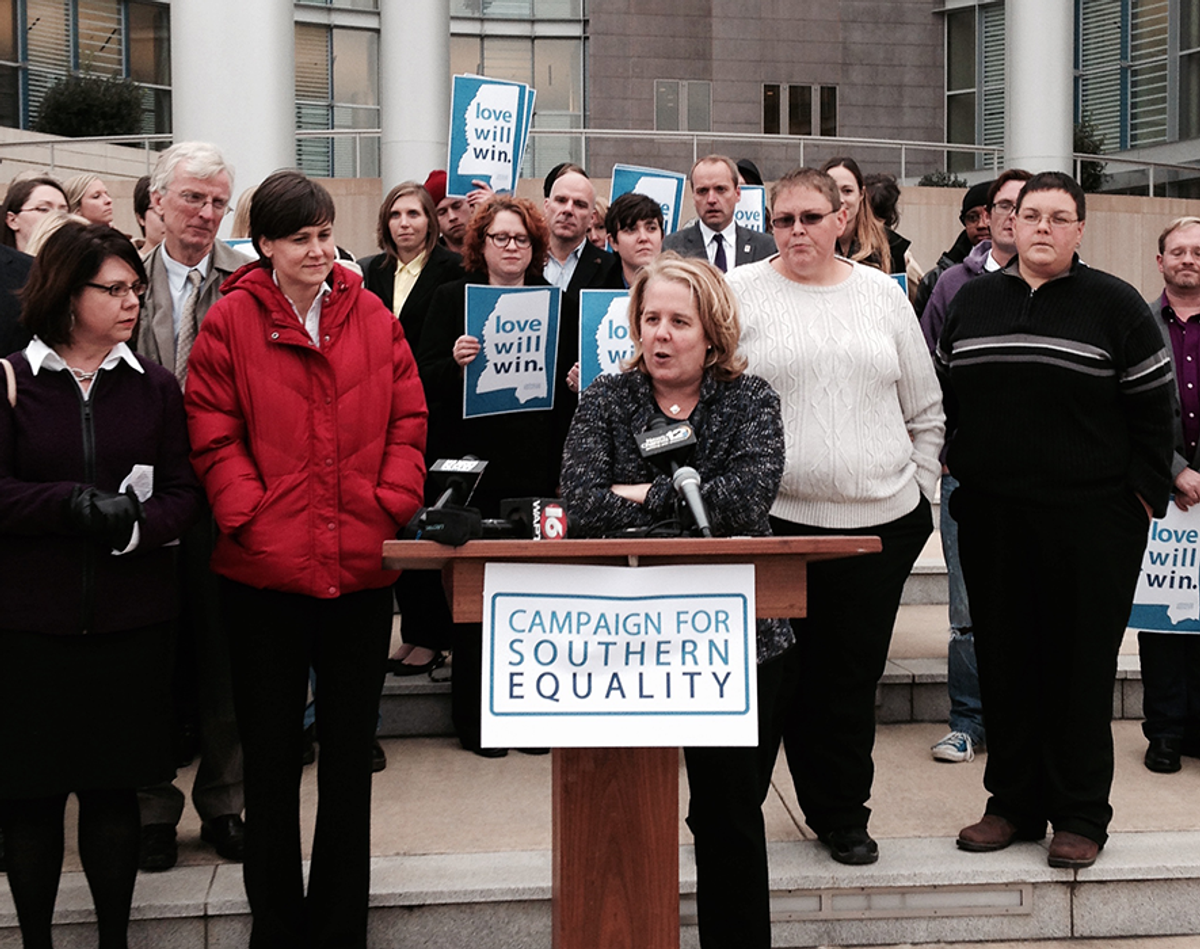Attorney Roberta Kaplan delivered a strong attack on discriminatory marriage laws in Mississippi in a federal courtroom last week, detailing at length why U.S. District Judge Carlton W. Reeves should overturn the state's marriage ban.
"We are here this morning because every single day my clients and gay couples like them throughout the state are suffering harm solely because they are gay," she began, and launched into a detailed analysis of precedent, scrutiny, and the basis for marriage bans.
For his part, Judge Reeves seemed receptive to her arguments, interjecting some questions but never expressing any great skepticism. At one point he asked why marriage equality wouldn't lead to polygamy, and Kaplan answered, "I've been litigating these issues now for a very long time, [and] people have made this argument to suggest that there's going to be this huge groundswell of litigation about polygamy if we win. And it's never happened and it, frankly, never will happen."
Reeves also asked how the Fourteenth Amendment to the U.S. Constitution could possibly provide for marriage equality, since the drafters could not have imagined it would ever be an issue. Kaplan agreed that the conversation around the freedom to marry is a relatively recent one, but added "that the drafters of the Fourteenth Amendment totally had no concept that there would be desegregation in public facilities, in schools, that white people in Loving would be able to marry black people."
"The Supreme Court stated over and over again, as we said in our moving brief in Windsor, that state limitations on the right to marry must still comply with the United States Constitution," Kaplan pointed out.
Kaplan also addressed the argument made by antigay attorneys that federal courts shouldn't address marriage equality, since the U.S. Supreme Court ruled 40 years ago that the issue presents no federal question. Since then, Kaplan explained, there have been significant rulings from the court that overrule the earlier decision. Those rulings, spread out over several years, repeatedly find that laws cannot discriminate against LGBT Americans simply for the purposes of discrimination.
The Mississippi case raises important issues involving the level of judicial review required for laws that discriminate on the basis of sexual orientation. Kaplan argued that gay and lesbian citizens are entitled to heightened scrutiny because they clearly fulfil the four factors courts consider when determining the level of review -- a fact that she argued even an 8-year-old could see.
"I'm going to go through them very briefly now because I think -- to quote my 8-year-old son, Jacob, I think the answer to almost all of them is 'doi,'" she told the court.
Those four factors require courts to determine if the group in question -- in this case, gays and lesbians -- has been subjected to an expressed animus against them, whether the status impacts the group;s ability to contribute to society, whether that status is immutable (if one can change one's sexual orientation), and whether the group suffers from political powerlessness.
At the end of the day, Kaplan argued, "the standard that the court looks at is whether the unequal treatment has an exceedingly persuasive justification. ... As I said before, the state doesn't even attempt to meet that standard."
Judge Reeves may rule on Mississippi's marriage ban any day now. From there, the parties will almost certainly appeal the decision to the Fifth Circuit Court of Appeals. Cases from Louisiana and Texas are currently scheduled for oral argument in early January before the Fifth Circuit, so the Mississippi case may catch up to them.















































































